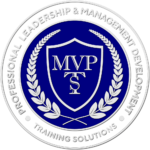Have you ever wondered about the difference between teamwork and team building?
While these two concepts may seem similar, they actually have distinct meanings and purposes. Understanding the difference can help you build a more effective team and achieve your goals more efficiently.
In this blog, we’ll explore the nuances of teamwork and team building and discuss how you can use both to create a strong and successful team. So, let’s dive in and learn more!
What is Team Building?
Team building is the process of bringing together a group of individuals to work together more effectively as a team. It involves a range of activities and exercises designed to improve communication, build trust, enhance collaboration, and boost morale.
The ultimate goal of team building is to create a cohesive and high-performing team. Additionally, they can achieve their objectives more efficiently and with greater success.
Objectives of Team Building:
- Improving communication – Team building activities can help team members communicate better with each other. Similarly, effective communication is essential for a team to function efficiently and achieve its goals.
- Enhancing collaboration – Team building activities can help team members work together more effectively. Moreover, collaboration is critical to achieving common goals, and team-building activities can promote a sense of teamwork and encourage members to work together.
- Developing trust – Trust is crucial to building strong relationships and creating a positive team environment. Team building activities can help team members build trust by creating opportunities for them to get to know each other better and work towards common goals.
What Is Teamwork?
Teamwork is the collaborative effort of a group of individuals to achieve a common goal or objective. It involves working together towards a shared vision, using each team member’s unique skills and strengths to accomplish tasks and solve problems.
Objectives of Teamwork:
- Encouraging creativity and innovation – Teams that work well together can encourage creativity and innovation. Similarly, by sharing ideas and perspectives, team members can come up with unique and innovative solutions to problems.
- Developing individual and team skills – Teamwork can provide opportunities for individual skill development, as well as the development of team skills. Additionally, by working together, team members can learn from each other, share their knowledge and expertise, and develop new skills.
- Increasing job satisfaction and morale – Effective teamwork can lead to increased job satisfaction and morale among team members. When individuals feel like they are part of a successful team, they are more likely to be satisfied with their work and feel a sense of pride in what they have accomplished.
What are the Benefits of Team-Building?
Firstly, team-building activities can help team members communicate better with each other. Moreover, effective communication is critical for a team to function efficiently and achieve its goals.
Secondly, team-building activities can help team members work together more effectively. Collaboration is essential to achieving common goals, and team-building activities can promote a sense of teamwork and encourage members to work together.
Lastly, by improving communication, enhancing collaboration, and building trust, team-building can also increase productivity. When team members work well together and feel confident in each other’s abilities, they are more likely to be productive and achieve their goals.
What are the Benefits of Teamwork?
Firstly, when team members work together, they can accomplish more in less time than individuals working alone. Teamwork allows team members to leverage each other’s strengths, delegate tasks effectively, and work together to achieve common goals.
Secondly, teams can leverage the diverse perspectives and ideas of each member to come up with innovative solutions to complex problems. By working together, team members can generate new ideas and approaches that may not have been possible otherwise.
Lastly, teamwork provides opportunities for members to learn from one another, share their knowledge and expertise, and develop new skills. Furthermore, working on a team can help individuals develop self-leadership skills, communication skills, problem-solving skills, and many other valuable skills.
Team Building VS Team Work:
Purpose:
The primary purpose of team building is to improve the dynamics and relationships among team members. Moreover, team-building activities foster a sense of trust and respect among team members.
On the other hand, team working is focused on achieving specific goals or objectives. Furthermore, it is to leverage the skills and strengths of individual team members to achieve a common goal.
Strategy:
Team building activities are generally focused on improving communication, collaboration, and problem-solving skills. Moreover, these activities create a more positive and cohesive team environment that can lead to better teamwork.
Collaboration:
Team building encourages collaboration and teamwork among team members. Similarly, these activities may involve group activities or games that require teamwork and collaboration.
Additionally, teamwork is all about collaboration. The success of a team is dependent on the ability of team members to work together effectively towards a goal.
Objectives:
The objectives of team building are to improve communication, build respect and trust, encourage creativity and innovation, and enhance problem-solving skills. In contrast, the objectives of a team working are to achieve special goals and objectives.
Moreover, the team’s success is measured by its ability to complete tasks on time and to the required standard, Indeed.
